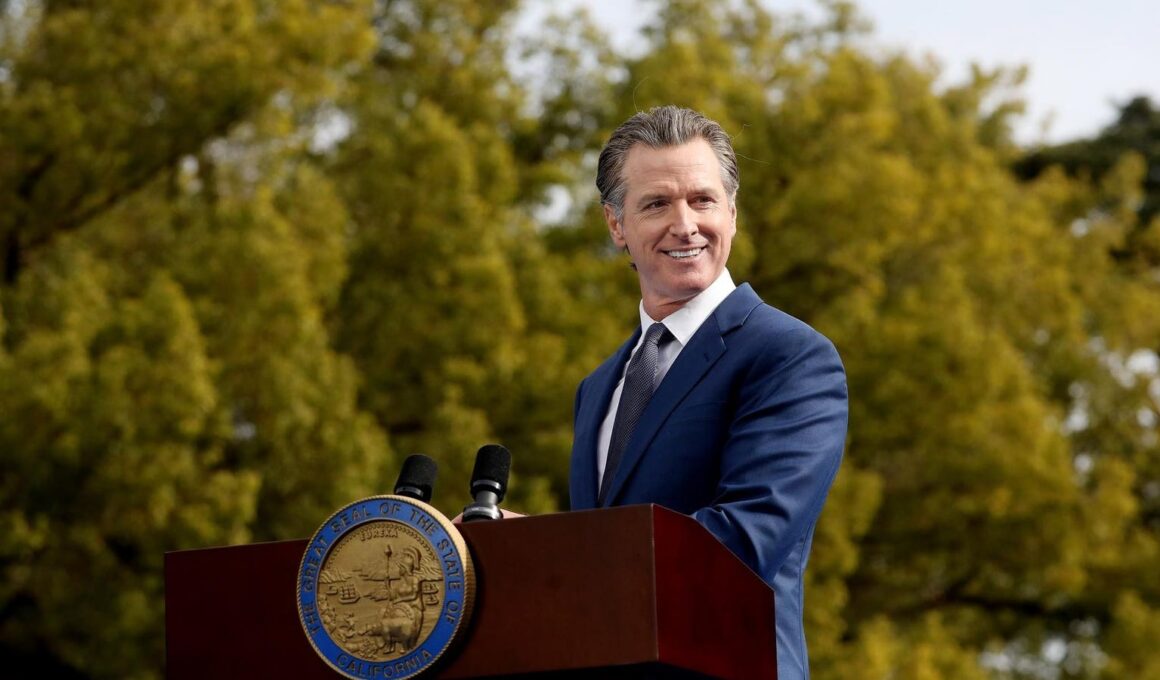Topline
California state agencies will begin removing homeless encampments under a new executive order from Gov. Gavin Newsom, multiple news outlets reported Thursday—the most high profile response yet to a June Supreme Court decision that allowed governments to crack down on homeless campers.
Newsom’s order applies only to state agencies, but many localities have announced separate plans to … [+]
Key Facts
Newsom’s executive order calls on state officials to take down thousands of homeless encampments across the state, which has the nation’s largest homeless population.
The executive order was made possible by a Supreme Court decision last month: The six conservative justices overruled lower court decisions that deemed sweeps of homeless encampments cruel and unusual punishment.
Under Newsom’s order, state agencies will break up encampments on land they control–such as state parks, highway overpasses and wildlife preserves–giving campers multiple days’ notice and connecting them with housing and other services.
Newsom cannot force cities to move on encampments, but the leaders of many localities, including San Francisco, have already outlined plans to clear them.
Chief Critic
Advocates for the homeless have condemned camping bans as both inhumane and ineffective. In a press release on the day of the Supreme Court’s decision, the National Housing Conference argued cracking down on camping without investing in more housing would be counterproductive. “There are few more effective ways to condemn them to chronic homelessness than prosecuting rather than housing them,” the statement reads. “Ironically, the cost of incarceration is significantly greater than the cost of affordable housing.”
Key Background
The Supreme Court decision stems from a lawsuit filed in Oregon, in which two homeless people claimed that a city’s ban on camping in public spaces violated the Eighth Amendment’s protection against “cruel and unusual punishment.” Before the case reached the Supreme Court, a federal court on the West Coast sided with them, arguing the city could not punish people without access to shelter for sleeping in public places. In June, the Supreme Court reversed the decision, with all six Republican-appointed justices in the majority and the three liberals dissenting. In his opinion, Justice Neil Gorsuch said that the Eighth Amendment does not allow federal judges to “dictate this Nation’s homelessness policy.”
Tangent
California’s cities have long struggled with homelessness crises. In Los Angeles, despite billions of dollars spent to address the problem, the unhoused population has only continued to grow. In 2023, there were over 75,000 homeless people in Los Angeles County, and according to an Associated Press report, one in three people who entered the shelter system in 2023 eventually returned to the streets. The wait time for placement into permanent housing is at times longer than two years. The city’s mayor, Karen Bass, however, condemned the Supreme Court decision last month. “This ruling must not be used as an excuse for cities across the country to attempt to arrest their way out of this problem or hide the homelessness crisis in neighboring cities or in jail,” she said. San Francisco has experienced a similarly high-profile homelessness crisis–though the raw numbers are much lower, with just 3,000 people living on the streets as of January 2024. The city’s mayor, London Breed, had a different perspective on the ruling, promising “very aggressive” sweeps of encampments beginning in August.









